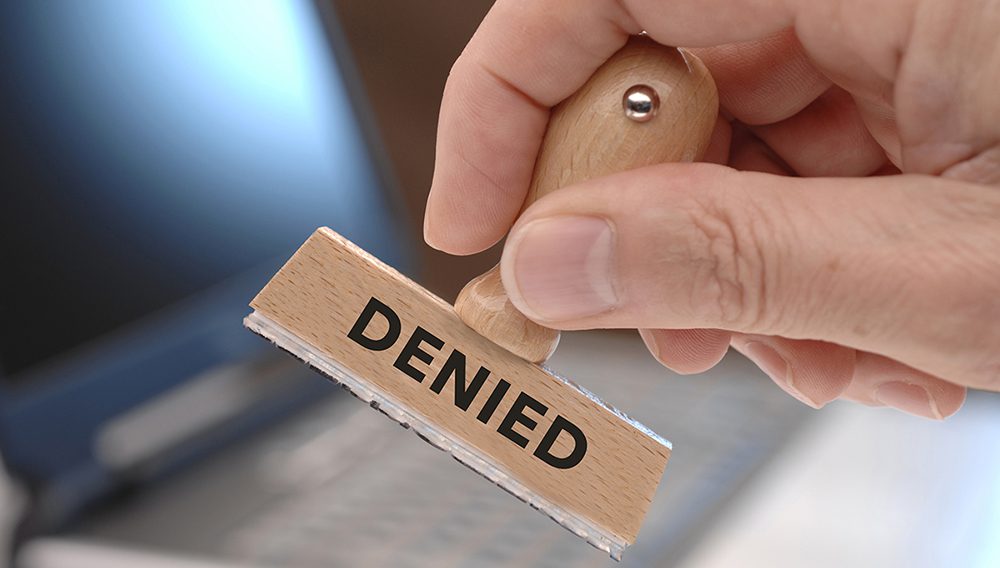On June 10, 2021, one of the biggest U.S. health insurers announced a new policy that would deny as many as 1 in 10 emergency room claims. The policy was an attempt to curb healthcare costs and was met with resistance from hospitals, healthcare institutions, and medical societies, causing the insurer to delay it.
The policy was not the first of its kind. In 2018, a series of ER policies impacted the reimbursement of low- and high-acuity cases. In recent years, there have been increases in the number of denied Evaluation and Management (E/M) coding-related claims and frustrations among providers who are overburdened with documentation requirements. And while stringent policies have played their part in it, they are not the sole reason for the increase in denied claims.
It’s no secret that the relationship between health care providers and insurance companies is complicated. Healthcare providers are spending a significant amount of time and energy with patients just to find out that an insurance company will fight them on paying for the services provided. Preventing claim denials helps ease the complications but denial management doesn’t come so easy to every medical practice.
While every medical practice is bound to experience some claims denials, practices need to recognize when denials are out of control and pointing to a bigger problem in terms of revenue cycle management.
Claim Denial Causes
90% of denials are preventable, reported Morgan Haines of Advisory Board in “An Ounce of Prevention Pays Off.” So, while effecting process change in an always-busy practice can be daunting, some often-simple operational process changes can ultimately save you both time and money.
Granted, it’s often hard to know where to begin, let alone implement these changes. But here are six areas that can make a significant improvement to prevent denials:
- Educate and communicate
- Verify insurance prior to service
- Know your payers
- Document accurately and appropriately
- Leverage technology
- Learn from mistakes
What’s Causing Denials? (Extented)
1. Missing information
Leaving just one required field blank on a claim form can trigger a denial. Demographic and technical errors, which could be a missing modifier, the wrong plan code or no Social Security number, prompt 61% of initial medical billing denials and account for 42% of denial write-offs.8
2. Duplicate claim or service
Duplicates, which are claims resubmitted for a single encounter on the same date by the same provider for the same beneficiary for the same service item, are among the biggest reasons for Medicare Part B claim denials (up to 32%).9
3. Service already adjudicated
This error occurs when benefits for a certain service are included in the payment/allowance for another service or procedure that has already been adjudicated.
4. Not covered by payer
Medical billing denials for procedures not covered under patients’ current benefit plans can be avoided by checking details in the insurance eligibility response or calling the insurer before administering services.
5. Limit for filing expired
Most payers require medical claims to be submitted within a certain number of days of service. This includes the time it takes to rework rejections, whether the review was automated (system edits to check for improper coding or other mistakes) or complex (licensed medical professionals determining if the service was covered and was reasonable and necessary).10 Correcting inpatient medical coding errors, which accounted for 81% of complex claim denials in fourth quarter 2015,11 can cause delays that push medical billing past the deadline. Workflow practices should alert staff when medical claims approach the time limit.
From Denials to Revenue
1. Improve Data Quality
Front office staff must be checking eligibility before patients are seen and determining if the services that will be provided are going to be covered by the patients insurance. Simple clerical errors, such as the patient’s name being spelled incorrectly or a missing Social Security Number can result in a claim rejection. The payment isn’t necessarily being denied but the claim is being kicked back to your staff and resulting in more time and money being wasted.
An example of a claim being denied because of data quality would be along the lines of an incorrect diagnosis code being used. While this could be appealed, it’s best to prevent it from happening in the first place which starts with improving the data quality of every claim.
2. Review Coding Processes
If a high number of your claim denials are resulting from insufficient medical necessity, you may need to consider some additional training for the clinicians. The best way to prevent this from happening in the first place is to make sure good communication exists among clinicians, medical billing staff, and coders.
Monitor your medical necessity denials and you can see where patterns exist and put in place the necessary processes to prevent these denials.
3. Focus on Pre-Authorization
Neglecting to get pre-authorization can cost your practice. Your practice management software can assist (in some cases) by flagging certain procedures and insurers so you’re staff will know what to do but your staff should also be aware of which insurers require pre-authorization and for what.
Additionally, it’s better to get pre-authorization for a procedure that isn’t ultimately done, rather than to do a procedure and try to get retroactive authorization for it. Some practices have found success by dedicating certain employees to this process entirely so that’s always something you can consider if your staffing volume is there.
4. Submit Claims on Time
Time is money and each insurance has a window in which you can submit a claim. Held on to a claim too long? You likely won’t be getting paid.
Some insurance guidelines will state that a claim must be submitted within 30 days of the date of service while others may be more lenient and give you 12 months. Occasionally claims are submitted but maybe not received or they just weren’t submitted in time in the first place. Other instances where a claim is denied for timely filing may come about because you submitted a claim, it was denied, and then you resubmitted it in which then it was denied because of timely filing. In this particular instance you’ll need to appeal the denial which is going to take up even more time.
Invest in a Solid Claims Denial Management Solution
The best revenue cycle management solutions pay close attention to credentialing, eligibility verification, charge entry, coding, and claim submission requirements before you push the “Send” button.
Fast Pay Health billers make sure your claims are scrubbed clean and are free from errors before we submit them—decreasing claim denials and delivering a consistent and positive cash flow for your practice.
Request a free practice analysis today and start enjoying the advantages of cleaner claims that focus on improving the financial health of your practice












